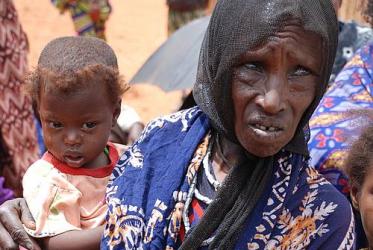Displaying 1261 - 1280 of 1286
Migrants, too, have human rights
01 December 2008
20 years of World AIDS Day is time for faiths to "take stock"
28 November 2008
Global economy needs radical changes, WCC team says
28 November 2008
Global food crisis has a spiritual dimension, says Kobia
24 November 2008
Food price crisis: What does it mean? What can we do about it?
19 November 2008
Wars in Sierra Leone and Liberia are over, peace-building is not
12 November 2008
Neoliberalism in retreat says ecumenical consultation
20 October 2008
Mental health is a community issue
10 October 2008
WCC executive committee meets and approves budget and statements
30 September 2008
Global campaign to promote "HIV-competent" churches
06 August 2008
HIV/AIDS: "We can't be silent"
19 February 2008
Ambassadors of hope
18 February 2008













